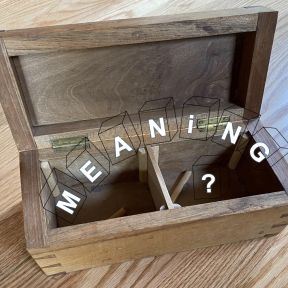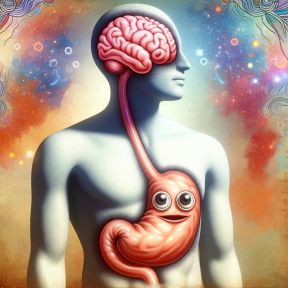Types of Memory
A person’s memory is a sea of images and other sensory impressions, facts and meanings, echoes of past feelings, and ingrained codes for how to behave—a diverse well of information. Naturally, there are many ways (some experts suggest there are hundreds) to describe the varieties of what people remember and how. While the different brands of memory are not always described in exactly the same way by memory researchers, some key concepts have emerged.
These forms of memory, which can overlap in daily life, have also been arranged into broad categories. Memory that lingers for a moment (or even less than a second) could be described as short-term memory, while any kind of information that is preserved for remembering at a later point can be called long-term memory. Memory experts have also distinguished explicit memory, in which information is consciously recalled, from implicit memory, the use of saved information without conscious awareness that it’s being recalled.
On This Page
When a person recalls a particular event (or “episode”) experienced in the past, that is episodic memory. This kind of long-term memory brings to attention details about anything from what one ate for breakfast to the emotions that were stirred up during a serious conversation with a romantic partner. The experiences conjured by episodic memory can be very recent or decades-old.
A related concept is autobiographical memory, which is the memory of information that forms part of a person’s life story. However, while autobiographical memory includes memories of events in one’s life (such as one’s sixteenth birthday party), it can also encompass facts (such as one’s birth date) and other non-episodic forms of information.
• The details of a phone call you had 20 minutes ago
• How you felt during your last argument
• What it was like receiving your high-school diploma
Semantic memory is someone’s long-term store of knowledge: It’s composed of pieces of information such as facts learned in school, what concepts mean and how they are related, or the definition of a particular word. The details that make up semantic memory can correspond to other forms of memory. One may remember factual details about a party, for instance—what time it started, at whose house it took place, how many people were there, all part of semantic memory—in addition to recalling the sounds heard and excitement felt. But semantic memory can also include facts and meanings related to people, places, or things one has no direct relation to.
• What year it currently is
• The capital of a foreign country
• The meaning of a slang term
Sitting on a bike after not riding one for years and recalling just what to do is a quintessential example of procedural memory. The term describes long-term memory for how to do things, both physical and mental, and is involved in the process of learning skills—from the basic ones people take for granted to those that require considerable practice. A related term is kinesthetic memory, which refers specifically to memory for physical behaviors.
• How to tie your shoes
• How to send an email
• How to shoot a basketball
The terms short-term memory and working memory are sometimes used interchangeably, and both refer to storage of information for a brief amount of time. Working memory can be distinguished from general short-term memory, however, in that working memory specifically involves the temporary storage of information that is being mentally manipulated.
Short-term memory is used when, for instance, the name of a new acquaintance, a statistic, or some other detail is consciously processed and retained for at least a short period of time. It may then be saved in long-term memory, or it may be forgotten within minutes. With working memory, information—the preceding words in a sentence one is reading, for example—is held in mind so that it can be used in the moment.
• The appearance of someone you met a minute ago
• The current temperature, immediately after looking it up
• What happened moments ago in a movie
• A number you have calculated as part of a mental math problem
• The person named at the beginning of a sentence
• Holding a concept in mind (such as ball) and combining it with another (orange)
Sensory memories are what psychologists call the short-term memories of just-experienced sensory stimuli such as sights and sounds. The brief memory of something just seen has been called iconic memory, while the sound-based equivalent is called echoic memory. Additional forms of short-term sensory memory are thought to exist for the other senses as well.
Sense-related memories, of course, can also be preserved long-term. Visual-spatial memory refers to memory of how objects are organized in space—tapped when a person remembers which way to walk to get to the grocery store. Auditory memory, olfactory memory, and haptic memory are terms for stored sensory impressions of sounds, smells, and skin sensations, respectively.
• The sound of a piano note that was just played
• The appearance of a car that drove by
• The smell of a restaurant you passed
Prospective memory is forward-thinking memory: It means recalling an intention from the past in order to do something in the future. It is essential for daily functioning, in that memories of previous intentions, including very recent ones, ensure that people execute their plans and meet their obligations when the intended behaviors can’t be carried out right away, or have to be carried out routinely.
• To call someone back
• To stop at the drugstore on the way home
• To pay the rent every month














